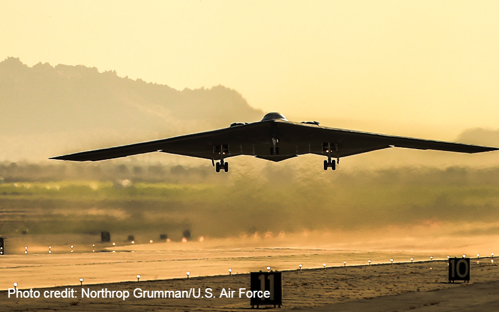When Iran addresses the United States, the demeanor is often threatening. But in the wake of a devastating U.S. bombing raid against its coveted nuclear facilities, is Iran now in position to back up its talk with agents already inside the continental U.S.?
It’s prudent to assume that Iran or its proxies have set up shop especially given the lack of border control in the previous four years under former President Joe Biden. Though intelligence agencies treat Iranian “sleeper cells” as a credible threat, their presence is as of yet unverified.
Vice President JD Vance warned Iran against retaliation efforts, saying it would be the “stupidest thing in the world” in an appearance on NBC’s Meet The Press Sunday, just hours after Operation Midnight Hammer dropped bunker buster bombs on Fordow and two other key Iranian nuclear sites.
“We’re not at war with Iran. We’re at war with Iran’s nuclear program,” Vance said while admitting the administration is preparing for potential terrorist attacks from sleeper cells that could be activated at any time.
The threat is unavoidable, but the threat should not have been a reason to scrap the mission to destroy or at least seriously impair Iran’s nuclear capabilities, Ray Alexander, a retired U.S. Naval commander, said on American Family Radio Monday.

“If there are sleeper cells in the United States, that's a bad condition, and we shouldn't be prevented from making this type of strike due to a threat of activating sleeper cells. It's sort of an unknown threat – and we as a global hegemon, as a global superpower can't allow the threat of sleeper cells to influence whether or not we would take advantage of this type of strike,” Alexander told show host Jenna Ellis.
Abbas Araghchi, the Iranian foreign minister, responded in prepared remarks.
“The Islamic Republic of Iran continues to defend Iran’s territory, sovereignty, security and people by all means necessary against not just U.S. military aggression but also the reckless and unlawful actions of the Israeli regime,” Araghchi said.
Strait Talk another area of concern
One object of retaliation could be the Strait of Hormuz. Approximately 20% of the world’s oil trade passes through the Strait, and disruption could spike oil prices.
The Iranian parliament has voted in favor of closing the Strait, and Colonel Esmaeil Kousari of the Iranian Revolutionary Guard Corp (IRGC) has confirmed the military stands ready to close the Straight “whenever necessary.”
Anti-ship missiles and mines are other possible measures for Iran.
European Union diplomats and U.S. Secretary of State Marco Rubio have cautioned Iran against interfering with the Strait of Hormuz, which could provoke a major U.S. or multinational military response.
Araghchi went on to chastise President Donald Trump for failed negotiations to disarm Iran.
Then the key official in a government known for executions and harsh treatment of political dissent also gave his take on Western democracy.
“While President Trump was elected on a platform of putting an end to America’s costly involvement of forever wars in our part of the world, he has betrayed not only Iran by abusing our commitment to diplomacy, but also deceived his own voters by submitting to the wishes of a wanted war criminal who has grown accustomed to exploiting the lives and wealth of American citizens to further the Israeli regime’s objectives,” Araghchi said.
It's far from the first threat from Iran. Earlier this month, Defense Minister Aziz Nasirzadeh said his country would target U.S. military bases in the region if conflict breaks out with the United States.
 The U.S., before Operation Midnight Hammer, had long maintained that moving key assets into the region was first and foremost about protection of troops stationed there.
The U.S., before Operation Midnight Hammer, had long maintained that moving key assets into the region was first and foremost about protection of troops stationed there.
“Some officials on the other side threaten conflict if negotiations don’t come to fruition. If a conflict is imposed on us … all U.S. bases are within our reach and we will boldly target them in host countries,” Nasirzadeh told reporters, the Reuters news agency reported on June 11.
The activation of sleeper cells, while dangerous, has the important side benefit of the cells exposing themselves, Alexander said. When they begin their work, he pointed out, they’re easily identifiable, asleep no more.
“If there are sleeper cells in the United States, I'd rather have them be activated so that we can address them and can take them out and root them out [rather] than just have them here quietly being some ambiguous threat against the homeland,” Alexander said.
Chatter could give away the cells
It will be communication between cells and their bosses that would most likely give them away. Once spotted, there’s a chance Homeland Security agents can neutralize them before the damage is done, Alexander said.
According to the retired Naval officer, sleeper cells “probably” exist. The threat has been in place for years but has increased dramatically under the Obama and Biden administrations, he explained.
All eyes are on the Iranian threat, but in terms of sleeper cells, it’s not only about the Iranians.
“I think probably the greater risk is sort of this homegrown threat where we have people who are sort of anti-civilizational ideologies that are morally relative, folks that are anti-colonial or open borders, this sort of anti-American threat, which there could be folks that are inspired by this attack on Iran that are a homegrown sort of threat. I think that's harder to predict and harder to identify than potential sleeper cells,” Alexander said.







